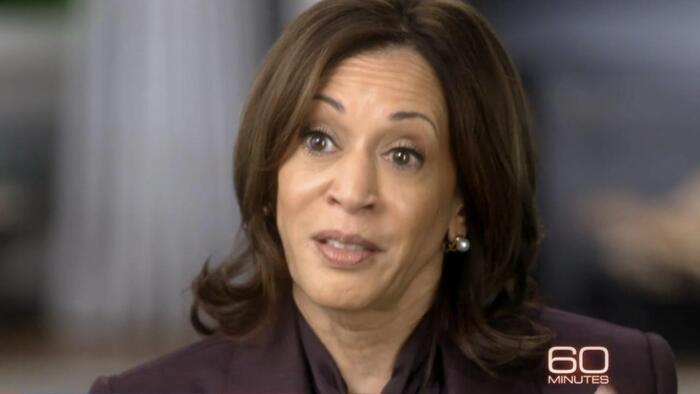A significant majority of voters, across party lines, are urging CBS to disclose the unedited transcripts from Vice President Kamala Harris’ interview on “60 Minutes,” suggesting widespread concerns regarding media integrity and transparency. According to a recent Harvard Harris poll, an overwhelming 87% of Democrats, 88% of Republicans, and 80% of independents believe that CBS should release the full transcript of the interview. This sentiment reflects a growing discomfort among the public with perceived media manipulation. While most Republicans (81%) suspect that CBS edited the interview to embellish Harris’ responses, the skepticism is shared by 50% of independents and just 27% of Democrats, indicating partisan differences in perceptions of media bias.
The controversy centers around accusations that CBS deceptively edited Harris’ performance to present a more favorable narrative. During the interview, when Harris was asked by host Bill Whitaker about Israeli Prime Minister Benjamin Netanyahu’s interaction with the U.S., her initial response was convoluted, leading many to label it as ‘word salad.’ In a pre-airing teaser, her original remarks suggested a lack of coherence, prompting criticism on social media. However, in the final aired version, her answer appeared more coherent and polished, leading to allegations that CBS engaged in unethical editing practices. This manipulation of content has ignited debate about journalistic standards and the responsibility media outlets hold in presenting accurate representations of public figures.
In light of the backlash, the Trump campaign has vocally criticized CBS and called for the release of the complete interview. The national press secretary for the Trump campaign, Karoline Leavitt, highlighted the perceived discrepancies in Harris’ responses, suggesting that the edits were an attempt to obscure a lack of substance in her communication. She questioned the rationale behind CBS’s decision not to air Harris’ full remarks, asserting that the public has a right to view the unedited interview to evaluate Harris’ competency directly. This demand echoes a larger theme in contemporary politics, where media representation can significantly influence public perception of political figures.
Former President Donald Trump himself has also chimed in on the issue via social media, criticizing CBS for its editing choices and insinuating that the network may be participating in unethical practices. He described Harris’ responses as “virtually incoherent” and suggested that the editing could amount to a “major Campaign Finance Violation.” Trump’s comments express a broader concern regarding media complicity in shaping narratives to favor certain political figures, which adds to the ongoing discourse about accountability in journalism. His demands for transparency, including the release of unedited footage, underscore the view that the public deserves unfettered access to information that impacts its understanding of political leadership.
The incident has not only stoked partisan tensions but also raised fundamental questions about the editorial choices made by media organizations and their implications for public trust. With a clear divide in belief regarding the motives behind CBS’ editing choices, the situation exemplifies a growing schism in how various demographics consume and interpret media content. The call for transparent reporting reflects a significant concern among the electorate regarding honesty and accountability in political representation; voters crave authenticity from their leaders, and the perception of a lack thereof can severely harm public trust in both the media and political institutions.
Ultimately, the “60 Minutes” episode serves as a case study in the intricate relationship between media and politics, where the editing of content has broader implications for public discourse. As 90% of voters advocate for the release of the full transcripts, the call for transparency illustrates a collective demand for media integrity, especially in an era marked by rampant misinformation and deepening divisions. The discourse surrounding this incident highlights the urgent need for media outlets to maintain rigorous standards of fairness and honesty, as their choices not only affect the reputation of political figures but also influence the broader narrative that shapes public opinion and civic engagement.

